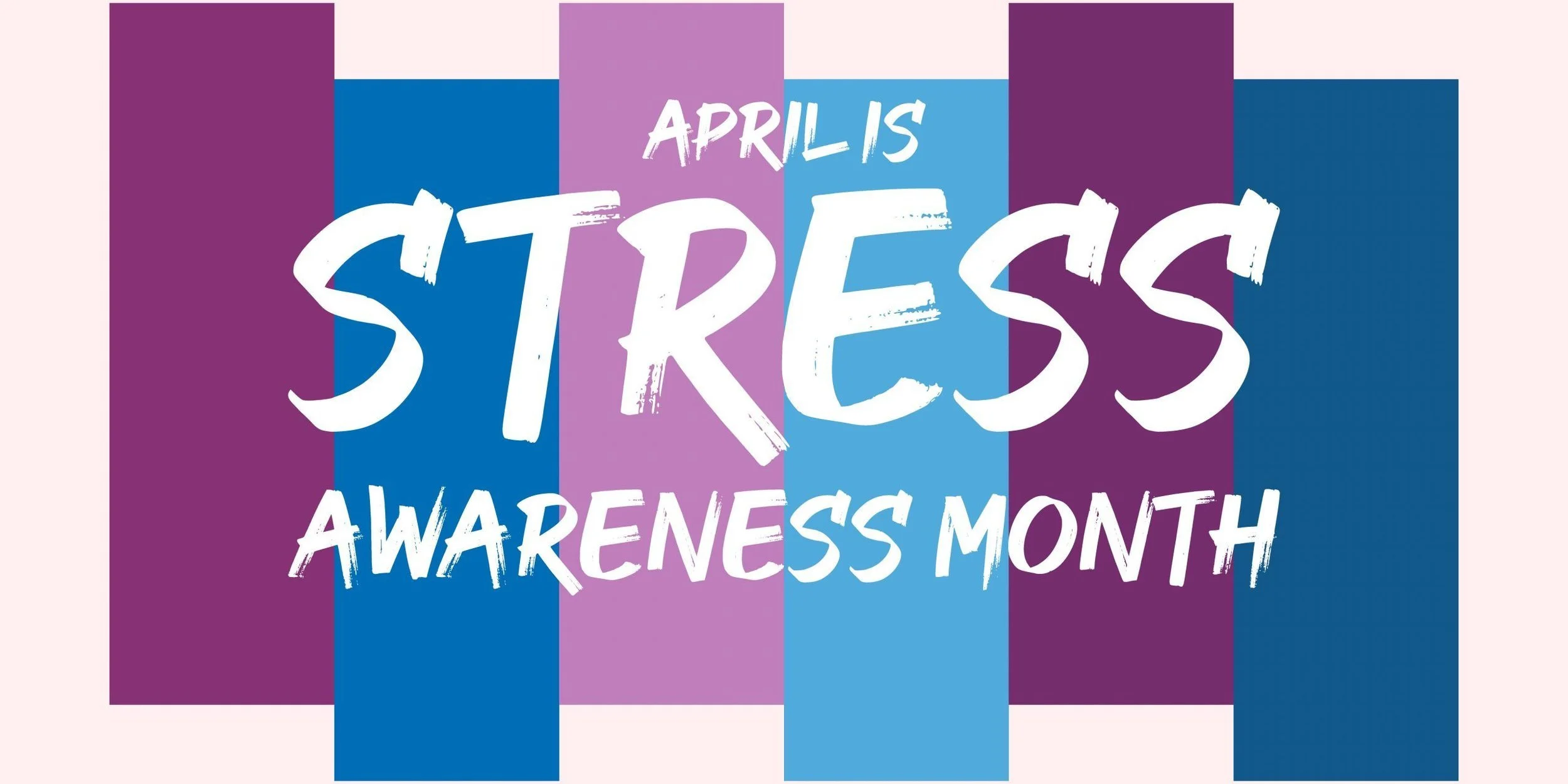Stress Awareness Month
I am sure we are all no strangers to stress and with April being stress awareness month, I thought I would get a blog post out about stress and how certain healthful habits can help us manage our stress and the impact it has on our health. Talking about stress and its effects are so important and I think the effects that too much stress can have on someone have been grossly underestimated. Stress can impact ones mental, physical and emotional wellbeing and it is important to be able to talk about stress.
We face stress in our everyday lives, whether it be in our professional lives, our social lives, families etc….Stress is not something we can just fix with a positive attitude. As well as some physical conditions that long term stress can cause such as heart problems, high blood pressure, insomnia etc, high stress can also lead to poor choices in terms of exercise, nutrition, alcohol and drugs.
Healthy lifestyle habits can help you reverse the effects of stress, enabling you to avoid or even reverse the negative effects of chronic stress. Learning to live a healthy lifestyle often brings additional benefits too, such as an endorphin rush, a release of frustration, or added longevity. Exercise reduces levels of the body's stress hormones, such as adrenaline and cortisol. It also stimulates the production of endorphins, chemicals in the brain that are the body's natural painkillers and mood elevators.
In terms of nutrition, trying to eat regular, nutrient dense meals can be extremely beneficial. Of course, and especially when we're extra busy and, subsequently, more likely to be stressed, eating healthy is certainly not an easy habit to maintain. For many, prepping healthy meals doesn't always fit into a busy schedule and dining out is the norm more often than not. Without going into too much detail on why the next few tips could help you manage stress, here are some things we recommend
Try and consume 4-5 different coloured fruit and vegetables
Drink plenty of water
Limit your caffein intake. They not only increase levels of certain stress hormones, but also mimic their effects in the body (increasing heart rate, for example).
Focus on some complex carbohydrates. Their steady release of sugar not only keeps your blood sugar levels steady, but also induces the brain to release more of the mood-enhancing chemical serotonin.
Eat lean protein sources and oily fish
Finally, sleep!!!
High levels of stress impair sleep by prolonging how long it takes to fall asleep and fragmenting sleep. Sleep loss triggers our body's stress response system, leading to an elevation in stress hormones, namely cortisol, which further disrupts sleep. Sleep is a vital, often neglected, component of every person's overall health and well-being. Sleep is important because it enables the body to repair and be fit and ready for another day. Getting adequate rest may also help prevent excess weight gain, heart disease, and increased illness duration. Sleep helps control our metabolism and weight, promotes stable moods, helps prevent cardiovascular diseases, boosts our immune system/function, increases knowledge retention, and helps us with long and short-term memory. Sleep is also essential for brain functioning
Tackling sleep, nutrition and exercise may be overwhelming which is something we completely understand. If you are under a lot of stress I always suggest focussing on one thing at time. Pick either nutrition, exercise or sleep and try and make some good conscious choices. When which ever one you’ve picked becomes a habit you can focus on tackling the next one.


